February 7
Charles Dickens
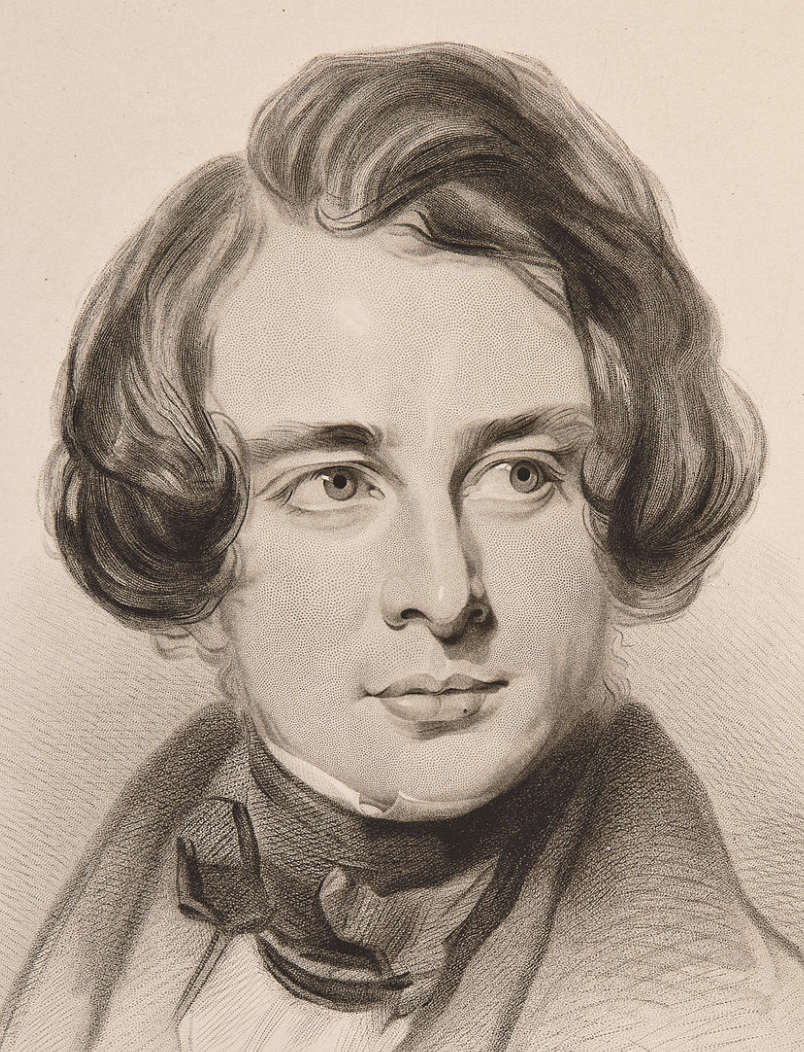
On this date in 1812, novelist Charles Dickens was born in England. As a child he chafed at the two-hour religious services he and his family attended. His brief experience working as a 12-year-old in a factory when his father was sent to debtor’s prison had a life-changing effect on him. Although he returned to school, he began work as a clerk at age 15 when his family was evicted. Moving to freelance reporting, he soon turned to story writing.
Dickens launched his budding celebrity with the serialization of his first book, The Pickwick Papers (1836-37). He married Catherine Hogarth in 1836. The death of her younger sister Mary, virtually in Dickens’ arms, was said to inspire Little Nell. The Dickenses had 10 children, nine of whom survived. Long incompatible, they separated, to Catherine’s grief, in 1858, when Dickens fell in love with actress Ellen Ternan.
Dickens’ hugely successful novel-writing career included Oliver Twist (serialized 1837-39), A Christmas Carol (1844), David Copperfield (1849-50), A Tale of Two Cities (1859) and Great Expectations (1861). His books called public attention to the scandalous conditions of child labor during the Industrial Revolution. His social conscience brought him to North America in 1842 to speak against slavery (and for international copyright).
Dickens was orthodox in many respects, praying daily and writing a “Life of Our Lord” (which took out much of the superstition) for his children. In the early 1840s he joined for a time the creedless Unitarians, describing it as a religion that “ventures to pass judgement on none.” Although he returned to the Church of England, he quit it once again, saying, “I cannot sit under a clergyman who addresses his congregation as though he had taken a return ticket to heaven and back.”
Dickens actively opposed a bill to ban public activity and recreational outlets on Sundays, writing in an essay titled “Sunday Under Three Heads” about the “intolerant zeal and ignorant enthusiasm” of the pious: “Look into your churches — diminished congregations, and scanty attendance. People have grown sullen and obstinate, and are becoming disgusted with the faith which condemns them to such a day as this, once in every seven.” D. 1870.
IMAGE: A sketch of Dickens on his 1842 visit to North America.
© Freedom From Religion Foundation. All rights reserved.“He hated the Roman Catholic Church, ‘that curse upon the world,’ as the tool and coadjutor of oppression throughout Europe. … He thought the influence of the Roman Church almost altogether evil.”
— "Charles Dickens: His Tragedy and Triumph" by Edgar Johnson (1952)
Sinclair Lewis
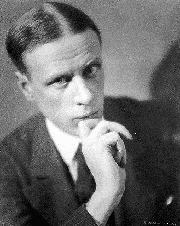
On this date in 1885, Harry Sinclair Lewis was born in Sauk Centre, Minn. The novelist wrote such enduring classics as Main Street (1920), Babbitt (1922), Arrowsmith (1925) and the irreverent Elmer Gantry (1927). The title character, a preacher, is portrayed as a rogue and hypocrite who steals freethinker Robert G. Ingersoll’s “Love” as his signature sermon.
Lewis’ other books include It Can’t Happen Here (1935) and The God-Seeker (1949). An unbeliever since his days at Yale, from which he graduated in 1908, Lewis was married twice and had one son. In 1930 he became the first American to be awarded the Nobel Prize for Literature “for his vigorous and graphic art of description and his ability to create, with wit and humour, new types of characters.” (He had refused an earlier Pulitzer Prize.)
In his autobiographical sketch for the Nobel committee, Lewis noted that although he traveled widely, he had “lived a quite unromantic and unstirring life.” He was dubbed “the conscience of his generation” by Sheldon Norman Grebstein. (D. 1951)
© Freedom From Religion Foundation. All rights reserved.“It is, I think, an error to believe that there is any need of religion to make life seem worth living.”
— Lewis, quoted by Will Durant in "On the Meaning of Life" (1932)
Madison Arnold
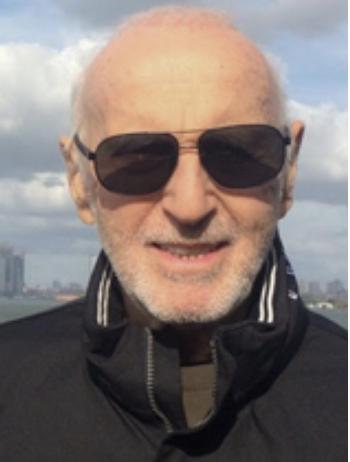
On this date in 1936, character actor Madison Arnold, who had roles in plays, films and television, was born in Allentown, Pa. Arnold graduated from Erasmus Hall High School in Brooklyn, NY, and Brooklyn College. He earned a master’s in European history from Columbia University and received scholarships to study abroad in Vienna and Berlin, where he did two years of postgraduate work in history, philosophy and languages.
Arnold, named after James Madison as a tribute to religious freedom in America, said in Freethought Today (March 1989): “I had a Jewish family background and have been an atheist as long as I can remember.” He and his brother refused to be bar-mitzvah’ed. Later, serving in Germany in the U.S. Army’s Second Armored Division, he was confronted with dog-tag preferences that provided no option for “atheist.”
Though he is best known for his television work, some film titles include “Escape from Alcatraz” (1979), “Xanadu” (1980), “The Lonely Guy” (1984), “Presumed Innocent” (1990), “The Turning” (1992), “White Lies” (1996), “Donnie Brasco” (1997), “Gracie” (2007) and “Monogamy” (2010). Some of his many television credits include: “Serpico” (1976), “Kojak” (1976-1978), “Baretta” (1978), “The Bionic Woman” (1977-1978), “Starsky and Hutch” (1976-1978), “Barney Miller” (1980), “Whiz Kids” (1980), “Hill Street Blues” (1985-1986), “Law & Order” (1999-2009), “Law & Order: Special Victims Unit” (2000-04) and “The Big C” (2010).
Most recently as of this writing, he appeared in three episodes of “The Village” series in 2019 on NBC.
Arnold, who has described himself as a “militant atheist” and even an “atheist of the hostile sect,” says there was never a time when he was not an atheist. “As a kid I looked up and saw no god and I wondered where ‘he’ got such a large notebook to write down X’s when I am bad, as I was told he did.” (Freethought Today, March 1989)
PHOTO: Courtesy of Madison Arnold
“I never accepted religion so I had nothing to reject as such. The history of ‘Christiansanity’ (my own coinage of which I am proud!) is so brutal of mind, emotions, freedom, progress, science and all that I hold precious, that by any standards of justice its leaders in almost any given period would be incarcerated for life, or worse!”
— "Madison Arnold: Actor, Activist, Atheist" (Freethought Today, March 1989)
Suzy Eddie Izzard
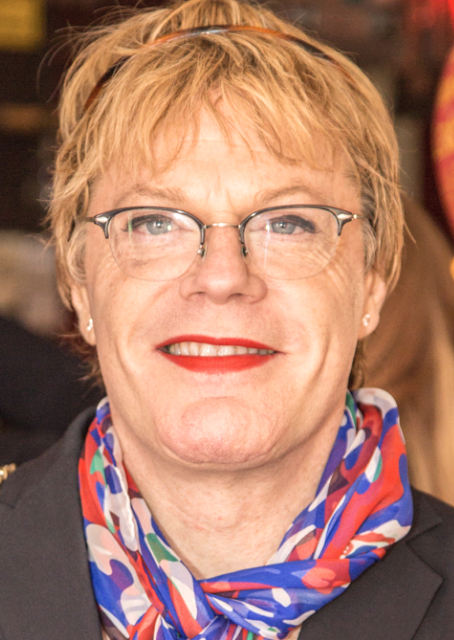
On this date in 1962, Suzy Edward “Eddie” John Izzard — comedian, actor, writer and activist — was born in Aden in what is now Yemen to Dorothy and Harold Izzard, a midwife/nurse and an accountant who worked for British Petroleum. The family moved back to Britain before Izzard’s first birthday. Dorothy Izzard died when Eddie was 6.
Throughout much of Izzard’s early stand-up career, she identified as a transvestite and performed in women’s clothing and makeup. In her 2008 show “Stripped,” she performed with a “blokey” look and told The New York Times (March 16, 2008) that she didn’t want to be in the “transvestite comedian” box anymore. To the Evening Standard (March 15, 2016): “I am a transgender guy. I came out 31 years ago. I’ve got boy genetics and girl genetics. … I identify somewhat boy-ish and somewhat girl-ish. I identify both but I fancy women.”
She told ITV host Lorraine Kelly (Jan. 7, 2021): “If people have a [personal pronoun] problem, just call me Eddie. It is no big deal for me. I’m gender fluid and I do all my dramatic roles in boy mode…” The show aired the day after the American seditionists’ attempted coup at the U.S. Capitol. Izzard wore a blue “Make Humanity Great Again” cap to the interview. She announced in March 2023 that she would start using the name Suzy in addition to Eddie, saying that she is “going to be Suzy Eddie Izzard.”
In 2000, Izzard received two Emmys, one for writing and one for performing, for her stand-up special “Dress to Kill.” She was nominated for a Tony Award for her Broadway performance in “A Day in the Death of Joe Egg.”
Izzard frequently pokes fun at religion, ranging from the uninspired hymn-singing in the Church of England to the bible and creationists. Routines often feature such topics as God and Jesus hanging out in heaven and scientific information that ought to have been included in the bible. In her show “Circle,” Izzard said, “So in the Christian faith, God created Adam in his own image, yeah, so that was good, but 65 million years before that, he created the dinosaurs using the image of his cousin Ted.”
Izzard says that she was agnostic for many years before embracing atheism. She told the audience in “Circle” that when “Jesus had to go down to Planet Earth and teach the word of the Lord to the dinosaurs. … ‘Rrrah, llllih, laaaal,’ says Jesus, trying to blend in.” On “The Late Show with Stephen Colbert” (June 14, 2017), she said: “I don’t believe in the guy upstairs, I believe in us.”
In 2013 Izzard received the 6th Annual Outstanding Lifetime Achievement Award in Cultural Humanism, presented at Harvard University by the Humanist Community at Harvard and the American Humanist Association.
PHOTO: Izzard at a 2015 Labour Party rally in London; Giuseppe Sollazzo photo under CC 2.0.
“I was warming the material up in New York, where one night, literally on stage, I realized I didn’t believe in God at all. … I just didn’t think there was anyone upstairs.”
— Izzard, The Times of London (Feb. 8, 2009)
G.H. Hardy
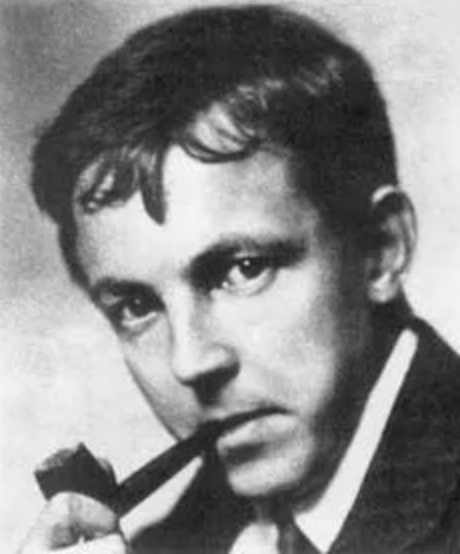
On this date in 1877, Godfrey Harold Hardy was born in Surrey, England. Hardy’s parents were teachers and he showed mathematical ability very early on in life. He attended Winchester College, a traditional British boarding school, for secondary education, where he was awarded a scholarship for mathematics. He entered Trinity College-Cambridge in 1896, where he studied mathematics. Continuing at Cambridge and independently studying mathematics, he earned his M.A. in 1903. He worked as a lecturer at Cambridge from 1909-19, when he left for Oxford, where he took the Savilian Chair of Geometry.
In 1931 he became Sadlerian Professor at Cambridge, a position he held until 1941. Hardy never married and had no known romantic attachments. He described his mentorship of the young Indian mathematician Srinivasa Ramanujan as “the one romantic incident of my life.” His sister cared for him in his old age. Jeremy Irons portrayed Hardy in the 2015 film “The Man Who Knew Infinity,” based on the biography of Ramanujan
Hardy helped to bring a new tradition of pure mathematics to England, which had remained largely applied since the time of Sir Isaac Newton. He worked to bring pure mathematical rigor and proofs to Cambridge, helping to reform the old curriculum which featured many practical problems in hydrodynamics. Although Hardy’s work at the time was purely theoretical, it has since been used to solve many practical problems. Many of his contributions were in the field of mathematical analysis and analytic number theory.
Hardy was a lifelong atheist, refusing to enter a chapel even for funerals or for elections of college officials. D. 1947.
1. To prove the Riemann hypothesis;
— From a list of New Year's resolutions sent by Hardy to a friend in the 1940s; "The Man Who Loved Only Numbers: The Story of Paul Erdos and the Search for Mathematical Truth" by Paul Hoffman (1998)
2. To make a brilliant play in a crucial cricket match;
3. To prove the nonexistence of God;
4. To be the first man atop Mount Everest;
5. To be proclaimed the first president of the U.S.S.R., Great Britain, and Germany.
Emo Philips
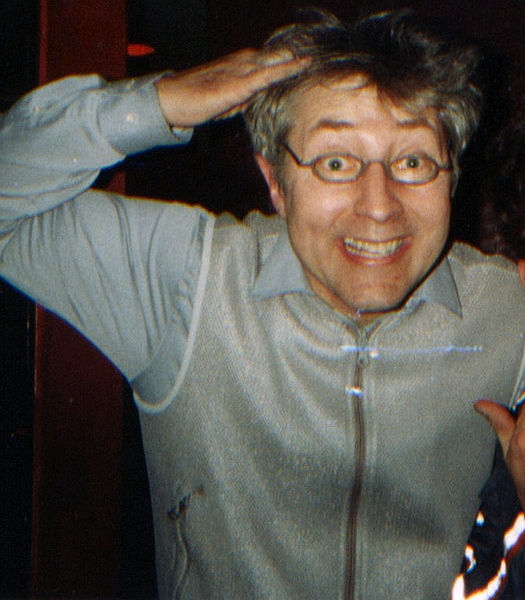
On this date in 1956, comedian Emo Philips was born in the Chicago suburb of Downers Grove. Philips is known for stand-up comedy and one-liners. His recorded comedy albums include “E=mo2 (1985) and “Live at the Hasty Pudding Theatre” (1987). Philips has also had many minor acting roles in movies and television shows.
Philips has told many religious jokes; one of them (too long to reprint here) was voted the funniest religious joke of all time by Ship of Fools and voted one of the 75 funniest jokes of all time by GQ magazine.
He retired in 2005 but emerged back on the comedy circuit around 2010 and experienced a considerable resurgence in popularity on national tours. He and “Weird Al” Yankovic toured together in 2018.
Photo by RanZag under CC 2.0, cropped.
“A Mormon told me that they don’t drink coffee. I said, ‘A cup of coffee every day gives you wonderful benefits.’ He said, ‘Like what?’ I said, ‘Well, it keeps you from being Mormon.’ “
— Philips' joke, The Guardian (Sept. 28, 2005)
Chris Rock
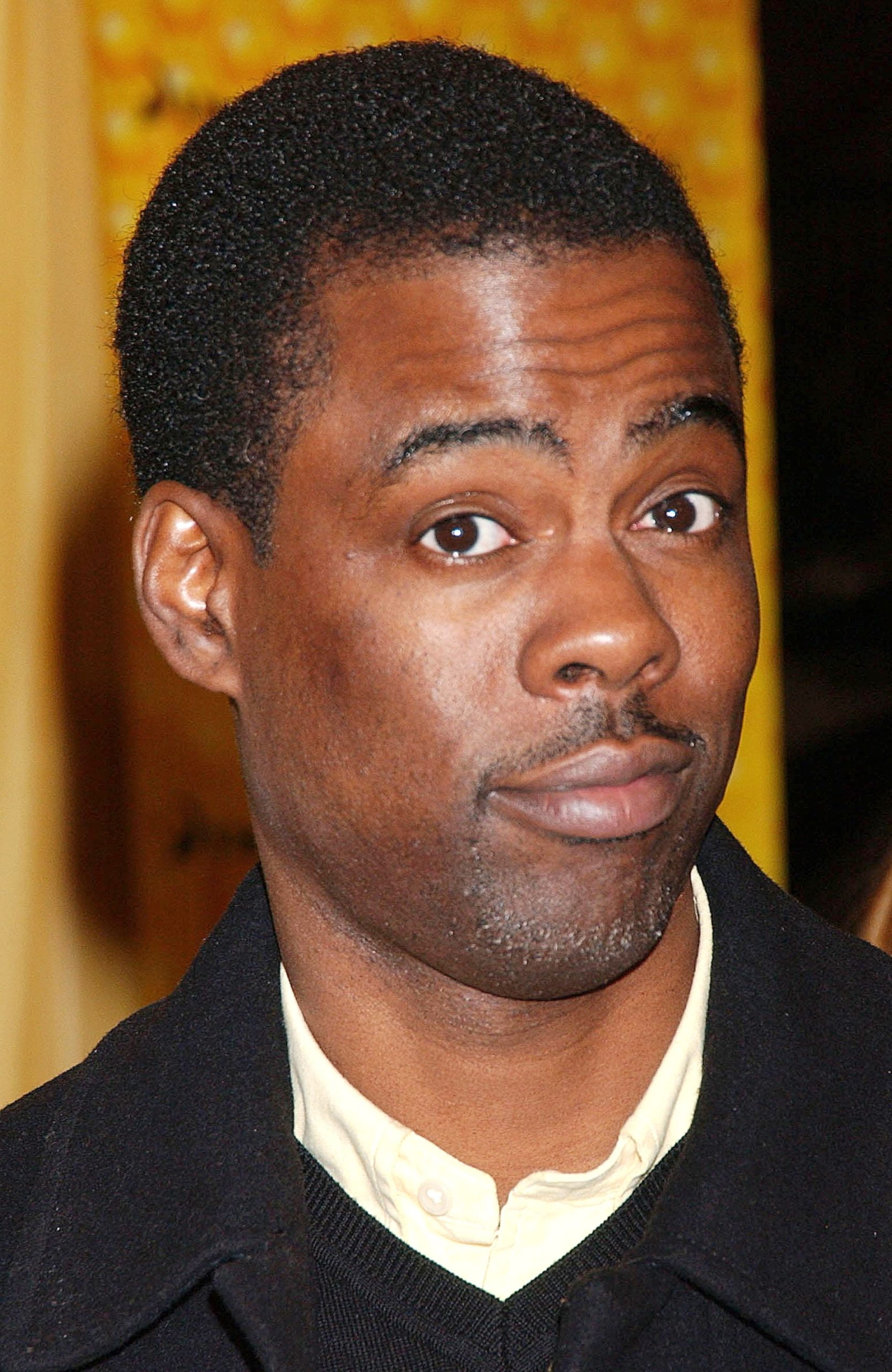
On this date in 1965, comedian, actor and producer Christopher Julius Rock III was born in Andrews, S.C. Shortly after Rock was born, his father, a truck driver and his mother, a teacher, moved to New York City. Rock was raised in the Bedford-Stuyvesant neighborhood of Brooklyn along with an older half-brother and three younger brothers. Rock’s parents, hoping it would improve his education, arranged to bus him to a different neighborhood, where he attended an almost entirely white public high school. He was subjected to racist bullying and harassment, and ended up dropping out, later earning a GED.
Comedic great Eddie Murphy discovered Rock performing stand-up in 1983 when Rock was just 18. In 1990 he joined the cast of “Saturday Night Live” and began appearing in bit roles in movies. He stayed with “SNL” for three years. Throughout the 1990s and 2000s, Rock’s stand-up was featured in five HBO specials. He hosted the 77th Academy Awards in 2005 and the 88th in 2016. He has won four Emmy Awards and three Grammy Awards. He was voted the fifth-greatest stand-up comedian in a poll conducted by Comedy Central.
Rock’s grandfather was a preacher and Rock says he was influenced by his performance style on the altar. However, that influence did not extend to religion. Rock’s comedy is peppered with skepticism about religion, including an episode of HBO’s “The Chris Rock Show” in which he visited with different faith leaders in a bit that mocked several major religions.
He directed and starred in the movie “Top Five” in 2014. His acting career also includes appearances in movies such as “Dogma” (1999), “Jay and Silent Bob Strike Back,” (2001), “Grown Ups,” (2010) and “Grown Ups 2” (2013). Netflix announced in 2016 that it would release two new stand-up specials, with Rock being paid $40 million per special. The first, “Chris Rock: Tamborine,” was released in February 2018 and was filmed at the Brooklyn Academy of Music. The release date for the second Netflix special was announced for March 4, 2023.
He married Malaak Compton in 1996. They divorced in 2016 and have two daughters, Lola Simone (born 2002) and Zahra Savannah (born 2004).
“When you’re black there’s like no religion to turn to. It’s like, Christianity? I don’t think so. White people justified slavery and segregation through Christianity so a black Christian is like a black person with no f***king memory.”
— Outtake from the 1989 documentary short "Who Is Chris Rock?"
